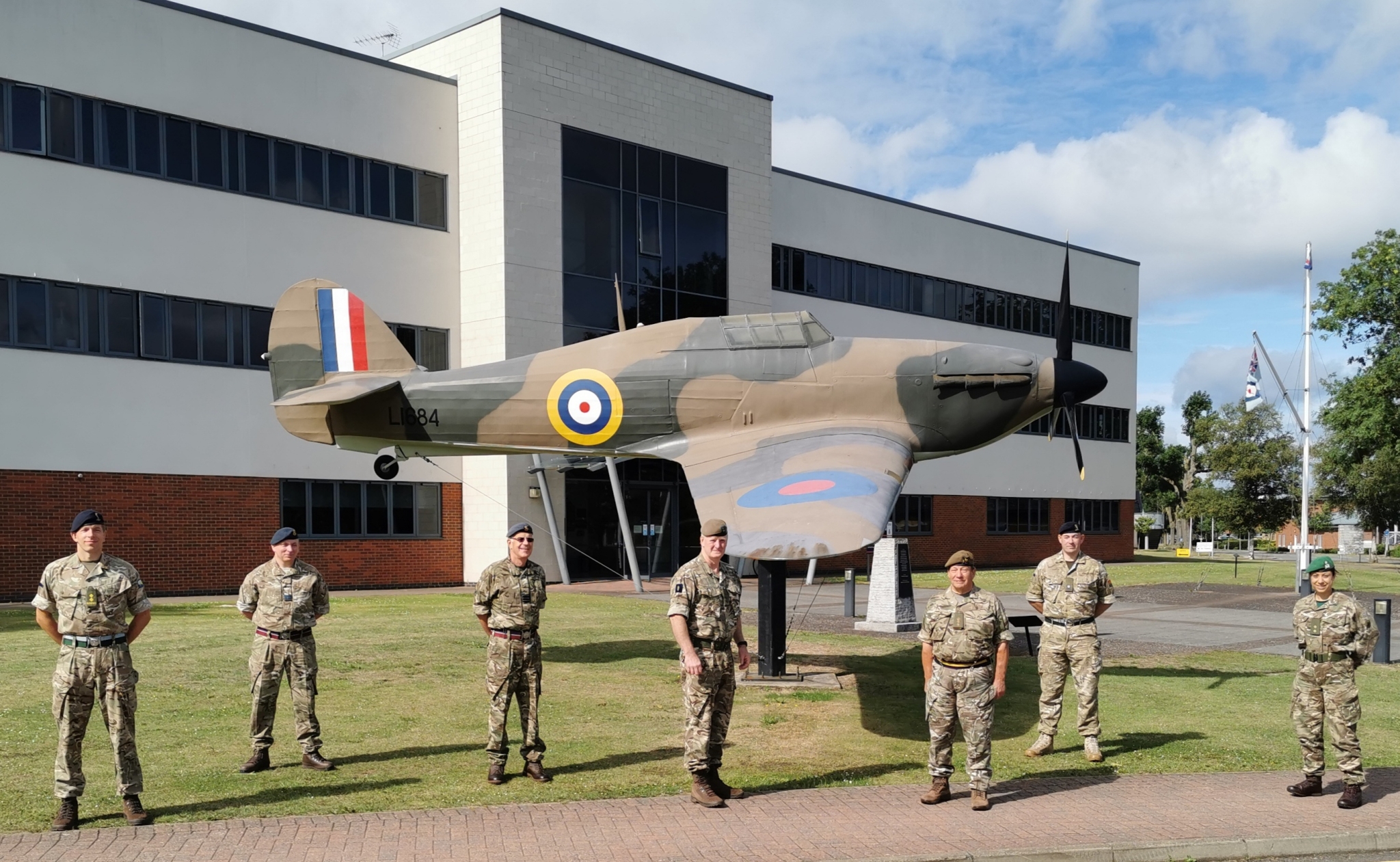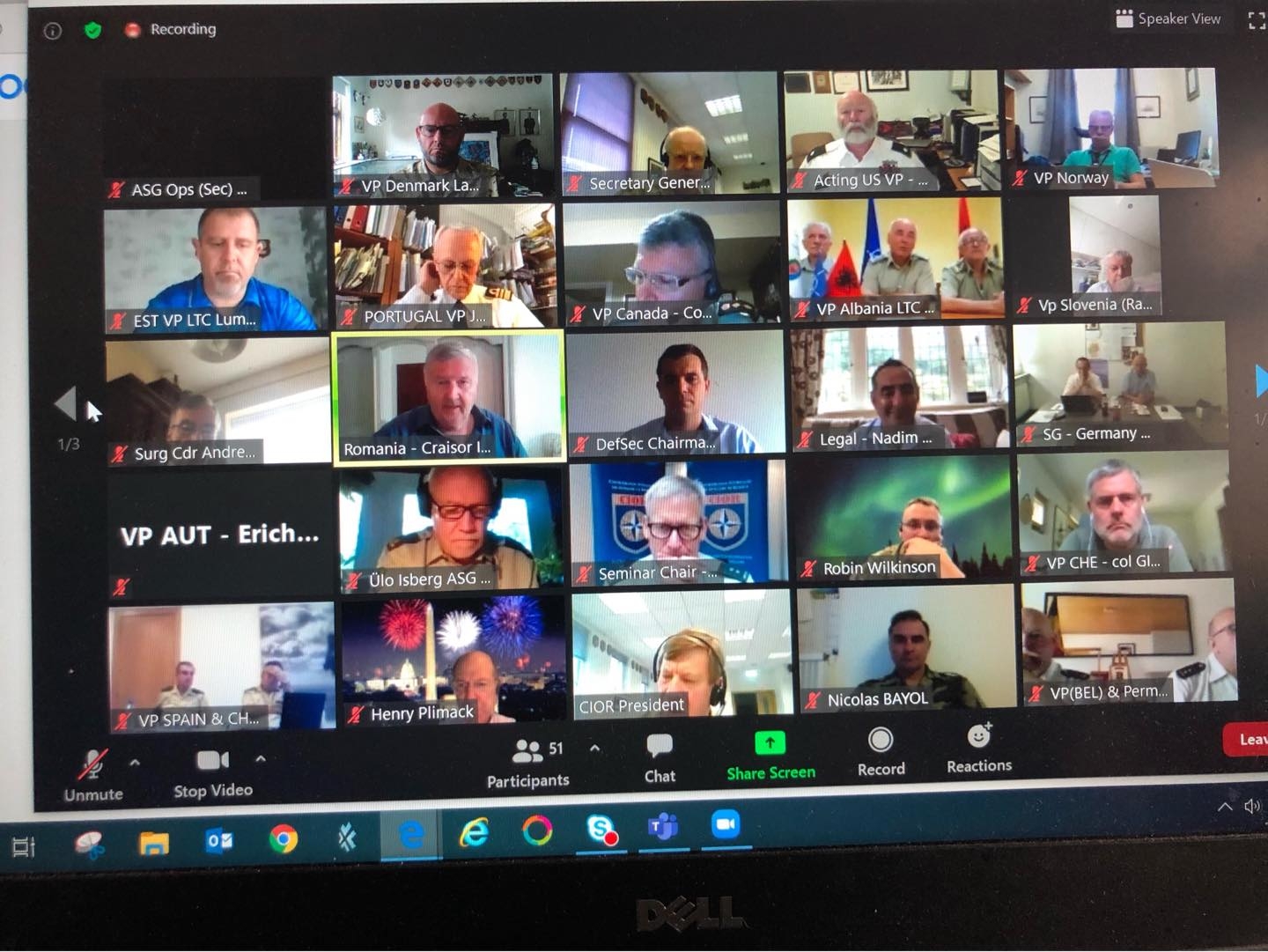CIOR wrapped up its first virtual IBM successfully last weekend with discussions on policy revisions and the way forward – to ensure the Confederation remains fit for purpose. More than 50 delegates and other attendees online made this historic conference a success.
By: Roy Thorvaldsen, Lt.Col. (R) Norwegian Army/CIOR Public Affairs
Never has CIOR organised such a large online meeting, and thanks to meticulous planning, thoughtful organisation and repeated rehearsals, everything went as good as anyone could hope for – both in terms of attendance and technically.
The outgoing British-Estonian Presidency and delegates concluded that this way of organising a meeting could be an example for future IBMs.
Although cyberspace activity is not foreseen to ever fully replace in-person meetings with face-to-face human interaction, the potential for savings in terms of both travel time and money by reducing travel is huge.
 The British part of the outgoing joint UK-Estonian CIOR Presidency at the Royal Air Force base Northolt, where they ran the first ever virtual CIOR convention, with more than 50 participants.
The British part of the outgoing joint UK-Estonian CIOR Presidency at the Royal Air Force base Northolt, where they ran the first ever virtual CIOR convention, with more than 50 participants.
CIOR 2030
A vetting of the CIOR constitutional foundation and strategic delivery to ensure continued – and strengthened – relevance, and to agree on an enduring business plan process for the future, was at the core of the meeting’s deliberations.
The outgoing Presidency was praised by several delegates for already having sharpened the focus of CIOR considerably, e.g. by the Romanian delegation (AORR).
“Indeed, during the Joint UK-Estonian Presidency, CIOR has renewed its attitude and ambition by delivering very good products and outputs”, their discussion paper said.
Especially mentioned was the signing of the Memoranda of Understanding (MoU) with NATO’s National Reserve Forces Committee (NRFC) and the Interallied confederation of non-commissioned officers (CISOR), the re-establishment of a Reserve Advisor at the NATO operational headquarters SHAPE and the strengthened training – especially with regard to young reserve officers and Cyber.
Now is the time to strengthen CIOR’s “main role of becoming a real advisor to NATO on Reserve Matters” and “a true think-tank on demanding issues regarding Reserve Forces and Reservists, including Cyber”, the AORR paper said, and delegates recognised that this role is a ‘’two way street’’ in which CIOR can play an important role in Strategic Communications from NATO to the civilian community.
This discussion will continue at the planned Late Summer Congress in Tallinn and further into the next two-year period. The strategic review is set to be concluded by 2023.
Ambitious agenda – and projects
 More than 50 delegates and other attendees participated in the conference online. Photo: Lars Bak.
More than 50 delegates and other attendees participated in the conference online. Photo: Lars Bak.
Other central points on the ambitious agenda for the IBM, was to ensure momentum is kept for organising a pilot ROW Course for young reserve officers in addition to the present YROW and a plan for a CIOR Language Academy Mobile Training Team (MTT) that CIOR has been asked to deliver by the International Military Staff (IMS) at NATO Headquarters in Brussels – and that is foreseen to cover a long list of countries participating in NATO’s outreach program.
The meeting also discussed the allocation of future presidencies and summer congresses, and further included reports from the various committees – which for the most part have been very active also during the COVID-19 pandemic and subsequent lockdowns.
Late Summer Congress in Tallinn
Council agreed to the plan to hold a Late Summer Congress in Tallinn, Estonia, September 27th – October 1st, unless the situation surrounding the COVID-19 pandemic worsens to the extent this might not be possible. A final “go” or “no go” will be decided upon by August 15th.
27th – October 1st, unless the situation surrounding the COVID-19 pandemic worsens to the extent this might not be possible. A final “go” or “no go” will be decided upon by August 15th.

The Presidency will facilitate that participants that still do not wish to travel during the present circumstances, or that are under travel restrictions, may participate online.
